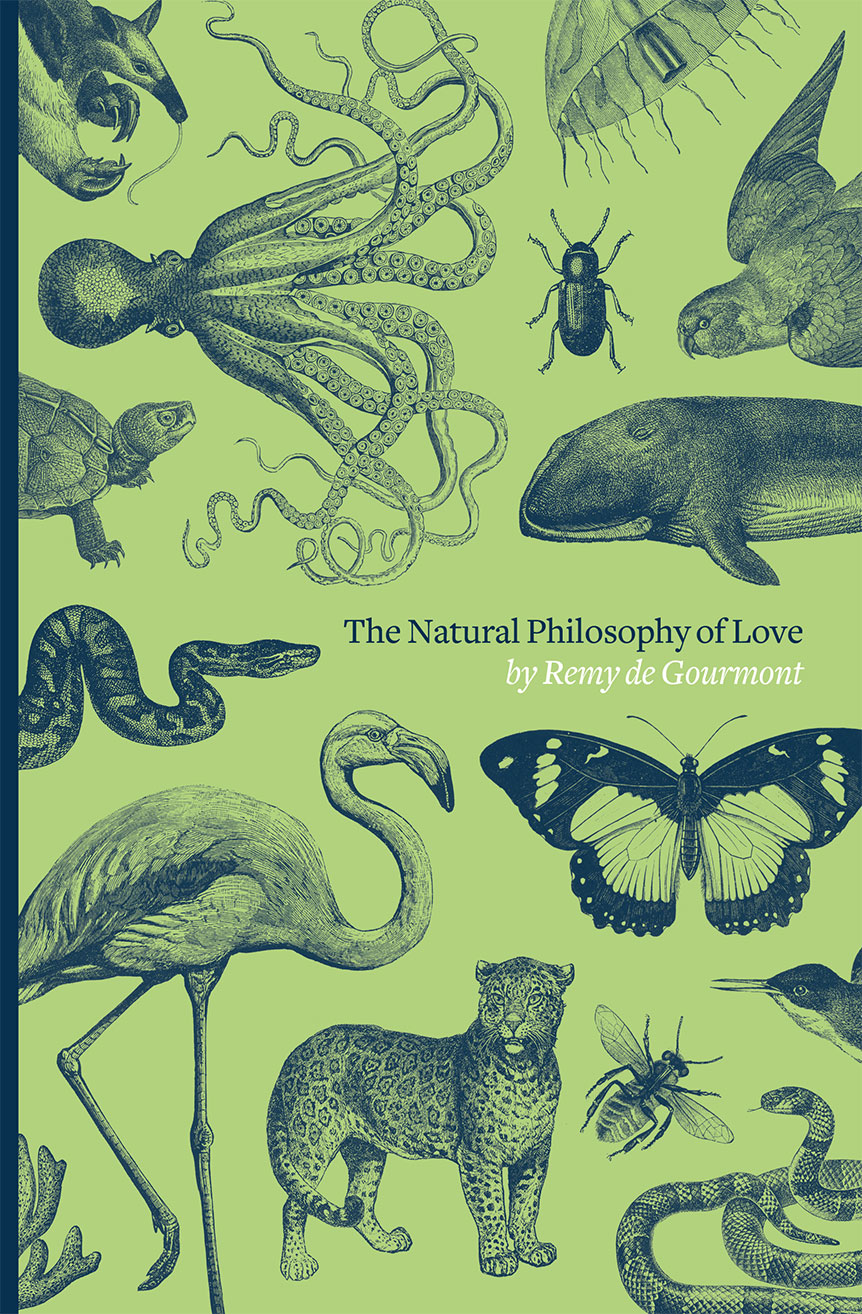
Rémy de Gourmont, The Book of Masks: An Anthology of French Symbolist & Decadent Writing, Trans. by Andrew Mangravite, Iain White, Stanley Chapman, Terry Hale, John Harman, & others, Atlas Press, 1995. [1921]
read & download it at: http://archive.org/details/cu31924027212301
This anthology is the largest ever selection from the Decadent and Symbolist writers of the French fin-de-siècle — a period whose social and spiritual ills had so much in common with those of today.
The selection is based on a series of essays on contemporary writers published as The Book Of Masks by the foremost critic and author of the period: Remy de Gourmont. (The “masks” are remarkable portrait drawings by Felix Vollotton.) De Gourmont’s essays brilliantly evoke the pre-occupations of each author, their genius and shortcomings, while simultaneously decribing, and contributing to, the literary theories of the movement. His introduction provides one of the most important overviews of Symbolism and decribes its gradual subsidence into its “dark side”: decadence. De Gourmont’s book consisted solely of essays, but the editor of this anthology has added characteristic texts from each writer to accompany them. Nearly fifty are included, ranging from the extraordinarily obscure and unjustly forgotten to the literary giants of the day. Here are the works by Gide, Mallarmé and Verlaine which have never before appeared in English.
Symbolism was a strange amalgam of the social turmoil of its times; its authors veer between an aesthetics based on simplicity and asceticism and the decadent debauches forever associated with Huysmans and Wilde. Their political associations were equally split, between Catholic piety and right-wing nationalism, and anarchist individualism taken to the point of bomb-throwing. What united these disparate writers was a desire to escape the confines of realism. They produced a fierce literature based on a renewed use of language, finely tuned, often astonishingly lush, which examines that mysterious region of the spirit that lies between inner and outer life. This collection should necessitate a complete re-evaluation of a school of writing that endured for several decades.
Authors include:Remy de Gourmont, Paul Adam, Jean Moréas, Léon Bloy, André Gide, Paul Claudel, Francis Jammes, Laurent Tailhade, Pierre Quillard, Rachilde, Alfred Vallette, Félix Fénéon, Camille Mauclair, Georges Eekhoud, Maurice Maeterlinck, Tristan Corbière, Jules Laforgue, Arthur Rimbaud, Adolphe Retté, Robert de Montesquiou, Ephraïm Mikhaël, Stuart Merrill, Joris-Karl Huysmans, Pierre Louÿs, Albert Samain, Jehan Rictus, Hugues Rebell, Jean Lorrain, Lautréamont, Éduard Dujardin, Gustave Kahn, Paul Verlain, G-Albert Aurier, Stéphane Mallarmé, Henri de Régnier, Jules Renard, Saint-Pol-Roux, Francis Poictevin, Paul Fort, Ernest Hello, Émile Verhaeren, Villiers de L’Isle-Adam, Marcel Schwob.
www.remydegourmont.org/de_rg/oeuvres/livredesmasques/bookofmasks.htm
Rémy de Gourmont, The Angels of Perversity, Dedalus, 1992.
Anatole France called Remy de Gourmont (1858-1915) the 'greatest living French writer'. The stories Francis Amery has collected and translated under the not inappropriate title The Angels of Perversity are from the first half of Gourmont's career, when, as a writer of short fictions he established himself as a significant figure in the Symbolist movement. - Adrian Tahourdin
"The stories themselves are tremulous, incense-ridden affairs in which enervated decadents slake their lust." - Mike Petty www.kirjasto.sci.fi/gourmo.htm

Rémy de Gourmont, The Natural Philosophy of Love , Kessinger Publishing, 2004. [1922.]
The Natural Philosophy of Love is an exploration of the prodigious
sexual mores of Nature’s creations. Translated with a postscript by
Ezra Pound, Remy de Gourmont’s “essay on sexual instinct”
surveys the entire animal kingdom, describing the hermaphroditism of
oysters, the cannibalistic amours of spiders, and many more curious
natural phenomena. Blending zoology, poetry, and philosophy, the
author’s subversive erudition casts a dubious glance at
anthropocentric morality, finding “there is no lewdness which has
not its normal type in nature.”
“As you read M. de
Gourmont’s work it is not any particular phrase, poem, or essay
that holds you, so much as a continuing sense of intelligence, of a
limpid, active intelligence in the mind of the writer.” —Ezra
Pound
But the very idea of an aim is a human illusion. There is neither
beginning, nor middle, nor end in the series of causes. What is has
been caused by what was, and what will be has for cause the existent.
One can neither conceive a point of rest nor a point of beginning.
Born of life, life will beget life eternally She should, and wants
to.

No comments:
Post a Comment
Note: Only a member of this blog may post a comment.